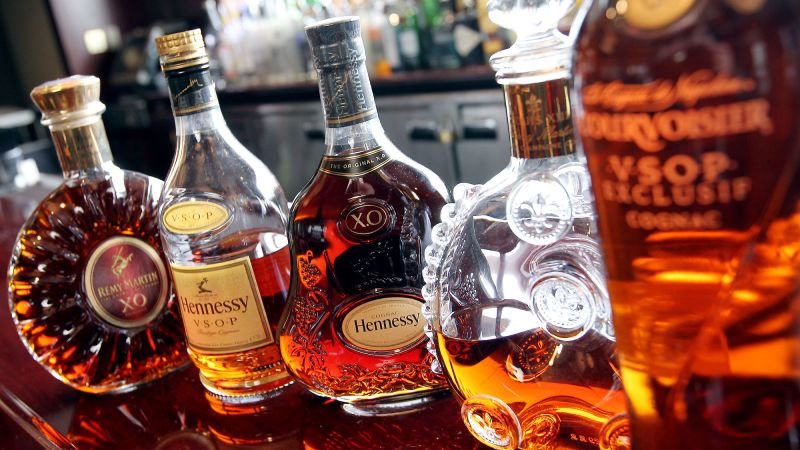China imposed temporary anti-dumping measures on brandy imports from the European Union, specifically targeting brands such as Hennessy and Remy Martin, in response to the EU’s decision to impose tariffs on Chinese-made electric vehicles. The Chinese Commerce Ministry stated that the dumping of EU brandy is causing “substantial damage” to China’s own brandy sector, with the possibility of similar measures being considered for EU pork products. In addition, there were discussions about potential tariffs on imports of large-engine vehicles, affecting German producers the most.
Importers of brandy from the EU will now have to pay security deposits of 34.8% to 39.0% of the import value, making it more costly to import these products upfront. The French brandy industry, which accounted for 99% of China’s brandy imports last year, was hit the hardest. Companies such as Hennessy and Remy Martin faced security deposit rates of 39.0% and 38.1%, respectively. The Chinese Commerce Ministry did not provide details on how or when importers would be able to retrieve their deposits.
Following the announcement of the punitive measures, shares in Pernod Ricard, Remy Cointreau, and LVMH, owner of Hennessy, dropped significantly. Companies that cooperated in the Chinese investigation faced lower security deposit rates, with Martell having the lowest rate at 30.6%. French cognac trade body BNIC and other key players in the industry did not immediately respond to requests for comment. These measures were introduced after the EU voted to impose tariffs on China-made EVs, prompting China to retaliate with measures on EU brandy imports.
The Chinese Commerce Ministry had previously found that European distillers were selling brandy in China at below-market prices, causing damage to China’s domestic industry. The EU’s decision to impose tariffs on Chinese-made EVs led to tariff rates ranging from 7.8% to 35.3% for different producers, in addition to the standard 10% car import duty. Despite these measures, the European Commission expressed willingness to continue negotiating alternative solutions with China. In the meantime, the Chinese ministry hinted at ongoing investigations into EU pork products and potential tariff hikes on imports of large-engine vehicles.
The timeline for these measures is set to continue, with the Chinese investigation expected to conclude before January 5, 2025, though it may be extended. The recent actions taken by both China and the EU highlight the escalating trade tensions between the two economic powers. The impact of these tariffs and measures on both the brandy and automotive industries remains to be seen, with uncertainties surrounding the logistics of the security deposits and potential long-term consequences for trade relations between the EU and China.

